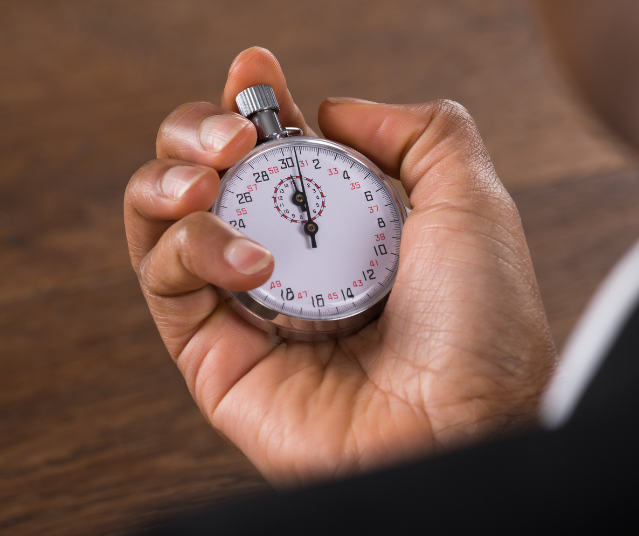Sexual performance is a topic that many men are curious about, especially when it comes to duration. Understanding the average sex timing of a healthy man can be insightful and help set realistic expectations, especially in a world where misconceptions about sexual stamina abound. This article aims to shed light on what’s typical for most men and offers practical advice for those looking to extend their timing. With topics ranging from physical exercises to mental strategies, this comprehensive guide will equip readers with tools to enjoy a more satisfying and enduring sexual experience.
Introduction to the Average Sex Timing of a Healthy Man
The average sex timing of a healthy man refers to the typical duration from the start of penetration to climax. Understanding this timing is important because it can alleviate stress or concerns about performance, helping men feel more confident. While it’s easy to compare oneself to exaggerated depictions in the media, this article is here to provide a realistic, research-based perspective.
Understanding Sexual Stamina and Timing
Sexual stamina and timing are key factors in a satisfying and healthy sexual relationship. These aspects are frequently discussed in the context of performance anxiety, cultural expectations, and overall sexual well-being. While media portrayals and societal norms often set unrealistic standards, understanding sexual stamina and timing from physiological, psychological, and relational perspectives can help individuals and couples cultivate healthier attitudes toward intimacy. A common benchmark that comes up in conversations about sexual performance is the “average sex timing of a healthy man.” This figure offers insight into what is typical for most men, and how it aligns with broader expectations around stamina,
Defining Sexual Stamina
Sexual stamina refers to a person’s ability to maintain sexual activity for an extended period without premature fatigue or discomfort. It involves a combination of physical endurance, emotional control, and the ability to delay ejaculation or prolong arousal. This results in a longer and potentially more fulfilling sexual experience. The average sex timing of a healthy man often serves as a benchmark for understanding typical sexual stamina, offering insights into what many men might experience in terms of duration and endurance during intimate moments.
The concept of stamina can vary greatly from person to person, influenced by factors such as age, physical fitness, mental health, and emotional connection. While average sex timing of a healthy man provides a general benchmark for sexual duration, it’s essential to remember that stamina is not solely about the length of intercourse. True stamina also involves the ability to fully enjoy the sexual experience and remain attuned to a partner’s needs, making intimacy about more than just how long it lasts.
Average Sex Timing of a Healthy Man
To better understand sexual stamina, a common question that arises is: How long should a man last during intercourse? Research studies provide a general guideline for what might be considered typical in terms of sexual timing. The “average sex timing of a healthy man” refers to the typical duration of time from penetration to ejaculation during vaginal intercourse, offering a benchmark for what most men experience.
Several studies have aimed to establish the “average sex timing of a healthy man,” with findings that vary based on the methodology used. One comprehensive study published
For men, the notion of an “ideal” sexual duration can often be influenced by cultural stereotypes that suggest longer intercourse is always better. However, the reality is that timing in sexual encounters is highly subjective. What’s considered “average” is not necessarily the same as what constitutes satisfaction for both partners.
The Psychology of Timing
Psychological factors play a significant role in sexual stamina and timing. Men often experience pressure to perform sexually in a particular way or to last for extended periods. This societal pressure can result in performance anxiety, stress, and a lack of enjoyment during sex. Men who are focused on how long they last may inadvertently disrupt the natural flow of their sexual experience.
Performance anxiety can be a major issue, leading to premature ejaculation or an inability to fully enjoy intimacy. In fact, premature ejaculation is a common concern among men, with many estimating their performance to be shorter than what their partners actually experience. Studies have shown that the vast majority of couples are satisfied with the average sexual encounter lasting only a few minutes, as long as the emotional and physical aspects of intimacy are fulfilling.
Additionally, sexual timing is deeply influenced by the level of arousal. A man’s sexual stamina is not fixed; it can fluctuate based on his emotional connection to his partner, the level of sexual excitement, and how relaxed or stressed he feels during the encounter.
Factors Affecting Sexual Stamina and Timing
- Age: As men age, testosterone levels typically decline, which can influence sexual stamina. Younger men, particularly those in their twenties and thirties, may find it easier to maintain sexual activity for longer periods of time. Older men, however, may experience changes in arousal, erectile function, and stamina.
- Physical Fitness: Physical fitness and overall health are closely linked to sexual stamina. Men who maintain a healthy weight, exercise regularly, and engage in activities that promote cardiovascular health often have better endurance and stamina in the bedroom.
- Psychological Factors: Mental health plays a crucial role in sexual performance. Stress, depression, anxiety, and other mental health concerns can all decrease sexual stamina. Conversely, relaxation techniques such as mindfulness, meditation, and a healthy relationship with one’s own sexuality can enhance sexual endurance and improve timing.
- Substance Use: Alcohol, tobacco, and recreational drugs can have a negative impact on sexual performance, reducing stamina and inhibiting the body’s natural response to sexual arousal. Moderation or avoidance of these substances is often recommended for better sexual health.
- Sexual Experience and Comfort: A man’s experience with intimacy and his comfort level with a partner also plays a significant role in sexual stamina. Familiarity and trust with a sexual partner can lead to better communication, reduced anxiety, and more focused arousal, all of which contribute to better timing and endurance.
Timing and Satisfaction
Sexual satisfaction does not depend solely on how long sex lasts. Many women, for example, report that they prefer shorter, more intense sessions of sex rather than long, drawn-out experiences. This highlights the importance of quality over quantity. In fact, studies suggest that mutual satisfaction in sexual relationships is more closely tied to emotional connection, communication, and the ability to respond to a partner’s needs than to how long intercourse lasts.
While the “average sex timing of a healthy man” offers a useful metric for understanding general trends, it should not be viewed as an absolute standard that everyone must meet. Instead, the goal for most people should be a focus on shared pleasure, emotional connection, and mutual satisfaction rather than a rigid adherence to specific time expectations.
Improving Sexual Stamina and Timing
For men who wish to improve their sexual stamina and extend the timing of their encounters, there are several strategies that can help:
- Kegel Exercises: These exercises, which involve strengthening the pelvic floor muscles, can improve control over ejaculation and enhance stamina. By practicing these exercises regularly, men can build greater endurance over time.
- Behavioral Techniques: Techniques like the “stop-start” method or the “squeeze” technique can help men learn how to delay ejaculation. These techniques involve pausing during sexual activity or applying pressure to the penis to reduce arousal before continuing.
- Mindfulness and Relaxation: Being present in the moment and reducing anxiety through mindfulness can significantly improve sexual stamina. Techniques such as deep breathing, meditation, and focusing on the pleasurable sensations of sex can help men maintain control and avoid premature ejaculation.
- Open Communication: Talking openly with a partner about desires, preferences, and expectations can improve the quality of the sexual experience. Emotional intimacy and trust are often more important than the length of time spent during intercourse.
- Consulting a Professional: If performance issues persist, seeking guidance from a healthcare provider or sex therapist can help address underlying issues such as erectile dysfunction, premature ejaculation, or emotional factors affecting sexual performance.
What Research Says About Average Sex Timing
Sexual performance and timing are common topics of curiosity and concern for many people. In a society where media portrayals and unrealistic expectations can skew perceptions of intimacy, it’s important to look at what research truly says about average sex timing. Specifically, understanding the average sex timing of a healthy man can provide a more accurate and grounded perspective, helping to manage expectations and reduce unnecessary anxiety about sexual performance.
For many, understanding how long an average sexual encounter lasts is key to managing expectations, reducing performance anxiety, and cultivating a healthier approach to intimacy. Research on average sex timing of a healthy man offers valuable insights into what is typical for most men. However, these studies also highlight that there is no one-size-fits-all definition of “ideal” or “average” timing in sex, as it can vary greatly from person to person.
This article explores the scientific findings, methodology, and implications behind the concept of “average sex timing” as it pertains to healthy men, looking at how research has shaped our understanding of sexual stamina and satisfaction.
The Average Sex Timing of a Healthy Man: Defining the Metric
Before diving into the research, it is important to clarify what is meant by the “average sex timing of a healthy man.” In the context of sexual intercourse, the term typically refers to the average time spent between vaginal penetration and ejaculation. The measure is often reported in minutes, and its purpose is to provide a reference point for how long typical sexual encounters last.
In a general sense, studies have sought to determine the time interval between penetration and ejaculation for a wide range of men, typically focusing on healthy, non-clinical populations. These studies aim to provide a baseline for sexual duration, acknowledging that sexual timing can vary greatly depending on several factors such as age, health, psychological state, and cultural context.
Key Findings from Research on Average Sex Timing
- The Time Interval: One of the most widely referenced studies on sexual timing, conducted by Dr. Eric M. Leitenberg and his colleagues and published in the Journal of Sexual Medicine, explored the “average sex timing of a healthy man” by measuring the duration of intercourse among a large sample of heterosexual
- Cultural and Contextual Differences: It’s also worth noting that these studies are often based on specific cultural and geographical populations. For example, a 2013 study published in BJU International surveyed 500 couples across the U.S. and Europe and found that the “average sex timing of a healthy man” was slightly shorter in the U.S. compared to European countries. However, these differences were typically marginal and often reflected broader cultural attitudes toward sex, including societal pressures related to the frequency or intensity of sexual activity.
- Impact of Age on Timing:Age is one of the most significant factors affecting sexual timing. Younger men, particularly those in their 20s and 30s, tend to report longer sexual durations than older men. This is largely due to differences in sexual arousal and stamina. Testosterone, which plays a key role in sexual desire and performance, naturally declines with age. This can lead to changes in sexual function and, consequently, the timing of intercourse. As men grow older, they may experience a reduction in sexual stamina or a tendency toward quicker ejaculations.Studies show that men in their 40s and 50s may experience more variability in sexual duration, with some reporting significantly shorter or longer durations based on factors such as physical health, emotional well-being, and the use of medications or substances like alcohol.
- Premature Ejaculation:One of the most common concerns among men is premature ejaculation (PE), which refers to ejaculating sooner than desired during sexual intercourse. Research estimates that about 20–30% of men experience PE at some point in their lives. This condition is often associated with shorter-than-average sexual durations and can lead to anxiety, frustration, and reduced sexual satisfaction. However, it is important to differentiate between “premature” and “average” ejaculation. While the “average” duration of sexual intercourse may be around 5 minutes, some men experience premature ejaculation, where ejaculation occurs in less than a minute of penetration, or even before penetration.It is also worth noting that the definition of premature ejaculation is subjective and depends on both the individual’s and their partner’s expectations. Studies have shown that, in many cases, partners are generally satisfied with sexual intercourse lasting only a few minutes, and the pressure on men to perform for extended periods may be exaggerated.
Breaking Down the Science
Studies involving thousands of men worldwide reveal that average sex timing of a healthy man can vary widely from person to person. Researchers also find that sexual satisfaction doesn’t always correlate with longer duration. In fact, factors like emotional connection, comfort, and enjoyment often play a more significant role in satisfaction than simply prolonging timing.
Is Longer Always Better?
Many men assume that lasting longer is the key to satisfaction, but true pleasure often stems from mutual enjoyment, communication, and relaxation. By focusing on what matters most to you and your partner, you can create more fulfilling intimate experiences without feeling pressured to meet the average sex timing of a healthy man.
How a Sex Stopwatch Can Be Useful

Sexual satisfaction and performance often come with curiosity, concern, and societal pressures, especially for men. Many are intrigued by how long they last during sex, which can sometimes lead to anxiety. One way to objectively assess sexual performance and set realistic expectations is by using a sex stopwatch — a tool that measures the time from vaginal penetration to ejaculation. In this article, we’ll explore how using a sex stopwatch can help men understand their sexual stamina, reduce anxiety, and enhance the sexual experience, all while taking into account research on the average sex timing of a healthy man.
What is a Sex Stopwatch?
A sex stopwatch is a straightforward tool designed to measure the duration of sexual intercourse, specifically the time from penetration to ejaculation. It’s commonly used by couples who want to track performance and understand their timing better. Some versions are integrated into digital or app-based platforms, offering additional features like average times, trends, and tips for improving stamina. By using a sex stopwatch, men can gain valuable insight into their sexual performance in relation to the average sex timing of a healthy man, helping to manage expectations and improve overall satisfaction.
While using a stopwatch during sex may initially seem clinical or mechanical, it can be a valuable tool when approached with a thoughtful and nonjudgmental mindset. Instead of solely focusing on time as a measure of success, a sex stopwatch can help men become more aware of their sexual responses and provide an opportunity to explore ways to manage stamina. By comparing their performance to the average sex timing of a healthy man, they can gain insights into their own experience and work toward improving their sexual health in a balanced, objective way.
Potential Downsides and Considerations
While a sex stopwatch can offer valuable insights, it’s important to use it with caution and care. Timing oneself during sex should not become an obsession or a source of anxiety. The goal should always be to improve sexual satisfaction, rather than to fixate on a number or compare oneself to an average. Here are a few considerations to keep in mind:
- Pressure to Perform: If used incorrectly, a stopwatch may add unnecessary pressure to meet the “average sex timing of a healthy man,” leading to performance anxiety if expectations aren’t met. It’s crucial to view the stopwatch as a tool for self-awareness and progress, rather than a strict measure of success.
- Quality Over Quantity: Research indicates that sexual satisfaction is more closely tied to emotional connection, communication, and the overall experience than to the “average sex timing of a healthy man.” Focusing too much on duration can detract from these crucial elements of intimacy, which play a larger role in fostering a fulfilling sexual relationship.
How to Use a Sex Stopwatch
Using a stopwatch in the bedroom may seem unusual, but it can help track duration from start to climax, providing an idea of current performance. Here’s how to make the most of it:
- Baseline Measurement: First, establish your baseline timing.
- Set Realistic Goals: Set small, incremental goals instead of expecting drastic changes overnight.
- Monitor Progress: Each time you implement new techniques, measure the impact on timing to understand what works best.
A sex stopwatch helps track personal goals rather than focusing on external comparisons, emphasizing improvement over competition.
The Role of Physical Health in Sexual Timing

Physical fitness plays a crucial role in sexual performance and stamina. Staying active is one of the most effective natural ways to enhance endurance and potentially improve the “average sex timing of a healthy man.” Here are some key aspects of physical health that can contribute to a longer-lasting and more satisfying experience:
Cardiovascular Fitness
Physical fitness plays a crucial role in sexual performance and stamina. Staying active is one of the most effective natural ways to enhance endurance and potentially improve the “average sex timing of a healthy man.” Here are some key aspects of physical health that can contribute to a longer-lasting and more satisfying experience:
Strength Training
Building muscle strength, particularly in the core and legs, can enhance physical control during sex, positively impacting the “average sex timing of a healthy man.” Exercises like planks, lunges, and squats are effective in developing the muscles necessary for sustaining longer, more controlled sessions.
Kegel Exercises
Kegel exercises target the pelvic floor muscles, which are essential for ejaculation control. Strengthening these muscles can help men improve their control and extend the “average sex timing of a healthy man,” leading to greater endurance during sex.
Effective Techniques to Last Longer in Bed
The desire to improve sexual endurance is common, and there are several techniques that can help extend the “average sex timing of a healthy man.” These methods are practical, easy to implement, and can be practiced either solo or with a partner:
The Start-Stop Technique
This technique involves pausing sexual activity just before reaching climax. Once arousal subsides, resuming can help extend timing. Regular practice of this method can train the body to manage excitement more effectively, gradually improving endurance and potentially aligning with the “average sex timing of a healthy man.”
The Squeeze Technique
The squeeze technique involves gently squeezing the base of the penis when nearing climax. This can reduce arousal levels temporarily, delaying climax and effectively extending timing.
Edging
Edging, also called “surfing,” involves approaching climax and then pulling back before repeating the process. With practice, this technique can enhance control and build stamina, helping men align more closely with the average sex timing of a healthy man for longer-lasting performance.
Tips for How to Last Longer During Sex
In addition to physical techniques, here are some practical mental strategies for lasting longer during sex:
Control Breathing
Breath control is essential. Deep, slow breathing helps the body stay calm and focused, reducing the urge to climax too quickly. Practicing deep breathing techniques beforehand can improve timing, helping men align with the average sex timing of a healthy man for a more controlled and satisfying experience.
Distract Yourself
Some men find it helpful to focus on a non-arousing thought to reduce excitement and delay climax. While this technique may not be suitable for everyone, it can assist those who tend to climax too quickly, helping them align more closely with the average sex timing of a healthy man for a longer-lasting experience.
Slow the Pace
Rushing can increase the likelihood of a quick climax, so slowing down can have the opposite effect. Moving at a controlled pace allows both partners to fully savor the experience and can naturally extend timing, helping men align with the average sex timing of a healthy man for a more satisfying encounter.
Foods That Improve Sexual Stamina

Diet is a crucial but often overlooked factor in sexual health. The right foods can have a significant impact on stamina, energy levels, and endurance. By choosing the right foods, men can support their sexual performance and potentially align with the average sex timing of a healthy man. Here are some foods known to enhance sexual performance:
Bananas
Bananas are packed with potassium, a mineral that boosts energy levels and helps regulate blood pressure, both of which are important for improving endurance and supporting the “average sex timing of a healthy man.”
Oysters
Oysters are rich in zinc, a mineral essential for testosterone production. Since testosterone plays a key role in sexual health and stamina, oysters are a popular choice for those looking to improve endurance and potentially align with the average sex timing of a healthy man for longer-lasting performance.
Dark Chocolate
Dark chocolate is rich in antioxidants that improve circulation and stimulate the release of endorphins, the body’s natural “feel-good” chemicals. This can help enhance pleasure and performance, potentially supporting a man’s ability to align with the average sex timing of a healthy man for a more satisfying experience.
Watermelon
Watermelon contains citrulline, which improves blood flow, supporting stronger erections and better stamina.
By integrating these foods into your diet, you can improve both your general health and your stamina in bed.
Psychological Strategies for Enhanced Endurance
Mental resilience and focus are crucial for sexual stamina. The mind plays a key role in timing, as anxiety or distractions can often shorten duration. By staying mentally centered, men can better align with the average sex timing of a healthy man, allowing for a longer, more enjoyable experience. Here are some psychological tips for those looking to last longer during sex:
Reduce Anxiety
Performance anxiety can significantly affect timing. By reducing stress through relaxation techniques, deep breathing, or open communication with a partner, men can foster a calmer mindset, which can help align with the “average sex timing of a healthy
Visualization
Visualizing a successful experience can greatly boost confidence and help men manage excitement levels. By mentally preparing for a longer-lasting experience, men can feel more in control during intimate moments, aligning with the average sex timing of a healthy man for a more satisfying encounter.
Practice Mindfulness
Mindfulness involves being fully present in the moment and focusing on sensations without rushing toward climax. By practicing mindfulness, men can improve their control and extend their timing, learning to enjoy each sensation without feeling the need to hurry. This approach can help align with the average sex timing of a healthy man, enhancing the overall experience.
Importance of Communication in Sexual Satisfaction
Open communication with a partner is key to a satisfying sex life. Discussing preferences, expectations, and desires fosters trust and comfort, reducing performance-related anxiety. This connection can lead to longer, more fulfilling experiences, helping men align with the average sex timing of a healthy man and enjoy intimate moments with greater ease.
Why Communication Matters
- Builds Comfort: Talking openly with your partner builds comfort, which can naturally improve endurance.
- Reduces Pressure: When both partners understand each other’s needs, there’s less pressure to perform in a particular way, helping timing feel less important.
- Enhances Trust: Open communication strengthens trust, which often leads to better satisfaction, regardless of timing.
Know More : USA Sex Guide
Conclusion
In conclusion, the average sex timing of a healthy man is approximately 5 to 7 minutes, though this varies based on factors like physical health, mental state, and relationship dynamics. Improving endurance is achievable through a mix of physical techniques, diet, psychological strategies, and open communication with a partner. Ultimately, focusing on mutual satisfaction, comfort, and connection often leads to a more fulfilling sexual experience, regardless of timing.











